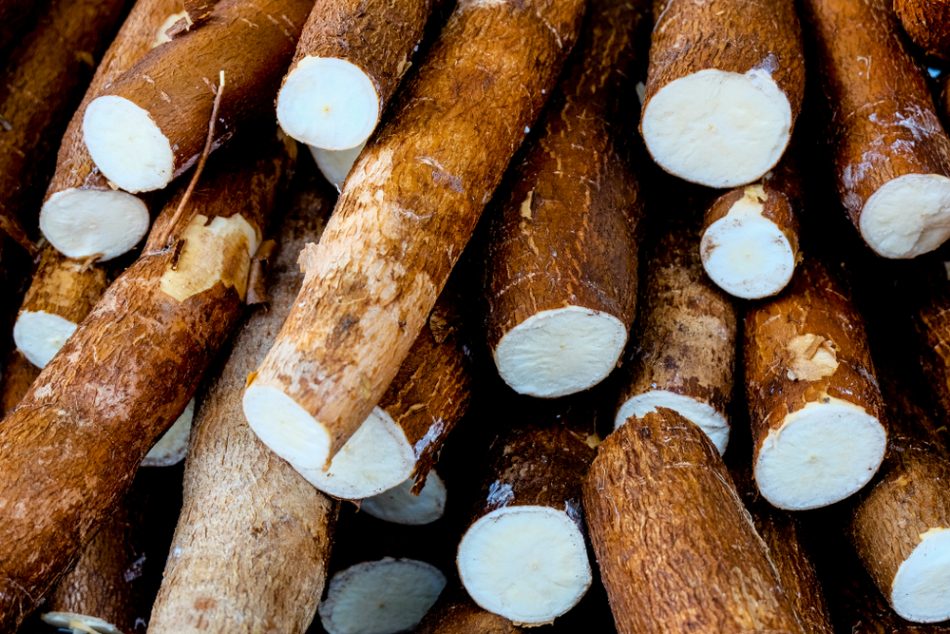Cassava is an edible, starchy root and a staple in West African, Latin American, and Caribbean cuisines. You may have also heard it by its other names: yuca, tapioca, or manioc. Cassava is nutrient-packed and energy-dense, making it a great source of carbohydrates. If you haven’t already tried cassava, here are five more reasons to add it to your shopping list.
- It’s rich in vitamin C. One cooked cup of cassava contains nearly 40 percent of your daily intake recommendation for vitamin C which means it can help boost your immune systems and meet your daily nutritional needs.
- It’s high in other antioxidants. Cassava also contains anti-inflammatory phenolic compounds that reduce inflammation and support long-term health.
- It’s a great source of complex carbohydrates. Complex carbohydrates provide energy while also supplying you with vitamins, antioxidants, and insoluble fiber. It’s a nutritious energy source to keep you fueled for longer.
- It’s full of fiber. Adequate fiber intake promotes better blood sugar control, reduced blood cholesterol levels, and overall improved gut health. At four grams per cup, cassava is a great source!
- It could make for better eyesight. Vitamin A plays a vital role in eye health and many newer varieties of cassava are fortified with provitamin A carotenoids, which improve vitamin A absorption.
Wondering how to cook cassava? Much like other starches, this starch is best enjoyed cooked as it can actually be toxic if consumed raw. You can opt for traditional yucca dishes which often involve baking, boiling, or frying them. It goes well with spices like cayenne and paprika and you can even mash it like a potato. If you don’t want to process the raw root, you can buy cassava flour which makes great bread, pancakes, and even cookies.












